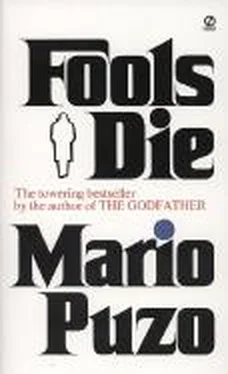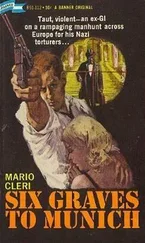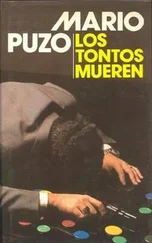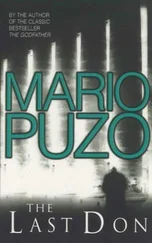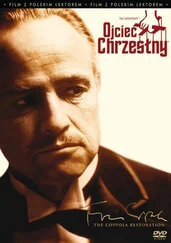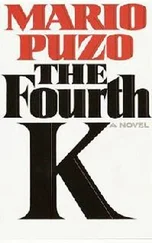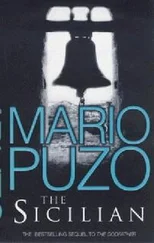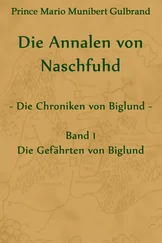Mario Puzo - Fools die
Здесь есть возможность читать онлайн «Mario Puzo - Fools die» весь текст электронной книги совершенно бесплатно (целиком полную версию без сокращений). В некоторых случаях можно слушать аудио, скачать через торрент в формате fb2 и присутствует краткое содержание. Жанр: Современная проза, на английском языке. Описание произведения, (предисловие) а так же отзывы посетителей доступны на портале библиотеки ЛибКат.
- Название:Fools die
- Автор:
- Жанр:
- Год:неизвестен
- ISBN:нет данных
- Рейтинг книги:3 / 5. Голосов: 1
-
Избранное:Добавить в избранное
- Отзывы:
-
Ваша оценка:
- 60
- 1
- 2
- 3
- 4
- 5
Fools die: краткое содержание, описание и аннотация
Предлагаем к чтению аннотацию, описание, краткое содержание или предисловие (зависит от того, что написал сам автор книги «Fools die»). Если вы не нашли необходимую информацию о книге — напишите в комментариях, мы постараемся отыскать её.
Fools die — читать онлайн бесплатно полную книгу (весь текст) целиком
Ниже представлен текст книги, разбитый по страницам. Система сохранения места последней прочитанной страницы, позволяет с удобством читать онлайн бесплатно книгу «Fools die», без необходимости каждый раз заново искать на чём Вы остановились. Поставьте закладку, и сможете в любой момент перейти на страницу, на которой закончили чтение.
Интервал:
Закладка:
Now on this midnight, Malomar alone in his bed, in his home, phoned the doctor. The doctor came and examined him and assured him the pains would go away. That there was no danger. That he should let himself fall asleep. The doctor brought him water for his angina pills and tranquilizers. And the doctor measured his heart with his stethoscope. It was intact; it was not breaking into pieces as Malomar felt it was. And after a few hours, resting more easily, Malomar told the doctor he could go home. And then Malomar fell asleep.
He dreamed. It was a vivid dream. He was at a railroad station, enclosed. He was buying a ticket. A small but burly man pushed him aside and demanded his ticket. The small man had a huge dwarf’s head and screamed at Malomar. Malomar reassured him. He stepped aside. He let the man buy his ticket. He told the man, “Look, whatever is bothering you is OK with me.” And as he did so, the man grew taller, his features more regular. He was suddenly an older hero, and he said to Malomar, “Give me your name; I’ll do something for you.” He loved Malomar. Malomar could see that. They were both very kind to each other. And the railroad agent selling the tickets now treated the other man with enormous respect.
Malomar came awake in the vast darkness of his huge bedroom. His eye lenses narrowed down, and with no peripheral vision, he fixed on the white rectangular light from the open bathroom door. For just a moment he thought the images on the cutting-room screen had not ended, and then he realized it had only been a dream. At that realization his heart broke away from his body in a fatal arrhythmic gallop. The electrical impulses of his brain snarled together. He sat up, sweating.
His heart went into a final thundering rush, shuddered. He fell back, eyes closing, all light fading on the screen that was his life. The last thing he ever heard was a scraping noise like celluloid breaking against steel, and then he was dead.
Chapter 33
It was my agent, Doran Rudd, who called me with the news of Malomar’s death. He told me there was going to be a big conference on the picture at Tri-Culture Studios the next day. I had to fly out and he would meet my plane.
At Kennedy Airport I called Janelle to tell her I was coming into town, but I got her answering machine with her French-accented machine voice, so I left a message for her.
Malomar’s death shocked me. I had developed an enormous respect for him during the months we had worked together. He never gave out any bullshit, and he had an eagle eye for any bullshit in a script or a piece of film. He tutored me when he showed me films, explaining why a scene didn’t play or what to watch for in an actor who might be showing talent even in a bad role. We argued a lot. He told me that my literary snobbishness was defensive and that I hadn’t studied film carefully enough. He even offered to teach me how to direct a film, but I refused. He wanted to know why.
“Listen,” I said, “just by existing, just by standing still and not bothering anybody, man is a fate-creating agent. That’s what I hate about life. And a movie director is the worst fate-creating agent on earth. Think of all those actors and actresses you make miserable when you turn them down. Look at all the people you have to give orders to. The money you spend, the destinies you control. I just write books, I never hurt anybody, I only help. They can take it or leave it.”
“You’re right,” Malomar said. “You’ll never be a director. But I think you’re full of shit. Nobody can be that passive.” And of course, he was right. I just wanted to control a more private world.
But still I felt saddened by his death. I had some affection for him though we did not really know each other well. And then too I was a little worried about what was going to happen to our movie.
– -
Doran Rudd met me at the plane. He told me that Jeff Wagon would now be the producer and that Tri-Culture had swallowed up Malomar Studios. He told me to expect a lot of trouble. On the way over to the studio he briefed me on the whole Tri-Culture operation. On Moses Wartberg, on his wife, Bella, on Jeff Wagon. Just for openers he told me that though they were not the most powerful studio in Hollywood, they were the most hated, often called “Tri-Vulture Studios.” That Wartberg was a shark and the three VP’s were jackals. I told him that you couldn’t mix up your symbols like that, that if Wartberg was a shark, the others had to be pilot fish. I was kidding around, but my agent wasn’t even listening. He just said, “I wish you were wearing a tie.”
I looked at him. He was in his slick black leather jacket over a turtleneck sweater. He shrugged.
“Moses Wartberg could have been a Semitic Hitler,” Doran said. “But he would have done it a little differently. He would have sent all the adult Christians to the gas chamber and then set up college scholarships for their children.”
Comfortably slouched down in Doran Rudd’s Mercedes 450SL, I barely listened to Doran’s chatter. He was telling me that there was going to be a big fight over the picture. That Jeff Wagon would be producer and Wartberg would be taking a personal interest in it. They had killed Malomar with their harassment, Doran said. I wrote that off as typical Hollywood exaggeration. But the essence of what Doran was telling me was that the fate of the picture would be decided today. So in the long ride to the studio I tried to remember everything I knew or had heard about Moses Wartberg and Jeff Wagon.
– -
Jeff Wagon was the essence of a schlock producer. He was schlock from the top of his craggy head to the tiptoes of his Bally shoes. He had made his mark in TV, then muscled his way into feature films by the same process with which a blob of ink spreads on a linen tablecloth and with the same aesthetic effect. He had made over a hundred TV feature films and twenty theatrical films. Not one of them had had a touch of grace, of quality, of art. The critics, the workers and artists in Hollywood had a classic joke that compared Wagon with Selznick, Lubitsch, Thalberg. They would say of one of his pictures that it had the Dong imprint because a young malicious actress called him the Dong.
A typical Jeff Wagon picture was loaded with stars a bit frayed by age and celluloid wear and tear, desperate for a paycheck. The talent knew it was a schlock picture. The directors were handpicked by Wagon. They were usually run-of-the-mill with a string of failures behind them so that he could twist their arms and make them shoot the picture his way. The odd thing was that though all the pictures were terrible, they either broke even or made money simply because the basic idea was good in a commercial way. It usually had a built-in audience, and Jeff Wagon was a fierce bulldog on cost. He was also terrific on contracts that screwed everybody out of his percentage if the picture became a big hit and made a lot of cash. And if that didn’t work, he would have the studio start litigation so that a settlement could be made on percentages. But Moses Wartberg always said that Jeff Wagon came up with sound ideas. What he presumably didn’t know was that Wagon stole even these ideas. He did this by what could only be called seduction.
In his younger days Jeff Wagon had lived up to his nickname by knocking over every starlet on the Tri-Culture lot. He was very much on the line with his approach. If they came across, they became girls in TV movies who were bartenders or receptionists. If they played their cards right, they could get enough work to carry them through the year. But when he went into feature films, this was not possible. With three-million-dollar budgets you didn’t fuck around handing out parts for a piece of ass. So then he got away with letting them read for a part, promising to help them, but never a firm commitment. And of course, some were talented, and with his foot in the door, they got some nice parts in feature films. A few became stars. They were often grateful. In the Land of Empidae, Jeff Wagon was the ultimate survivor.
Читать дальшеИнтервал:
Закладка:
Похожие книги на «Fools die»
Представляем Вашему вниманию похожие книги на «Fools die» списком для выбора. Мы отобрали схожую по названию и смыслу литературу в надежде предоставить читателям больше вариантов отыскать новые, интересные, ещё непрочитанные произведения.
Обсуждение, отзывы о книге «Fools die» и просто собственные мнения читателей. Оставьте ваши комментарии, напишите, что Вы думаете о произведении, его смысле или главных героях. Укажите что конкретно понравилось, а что нет, и почему Вы так считаете.
